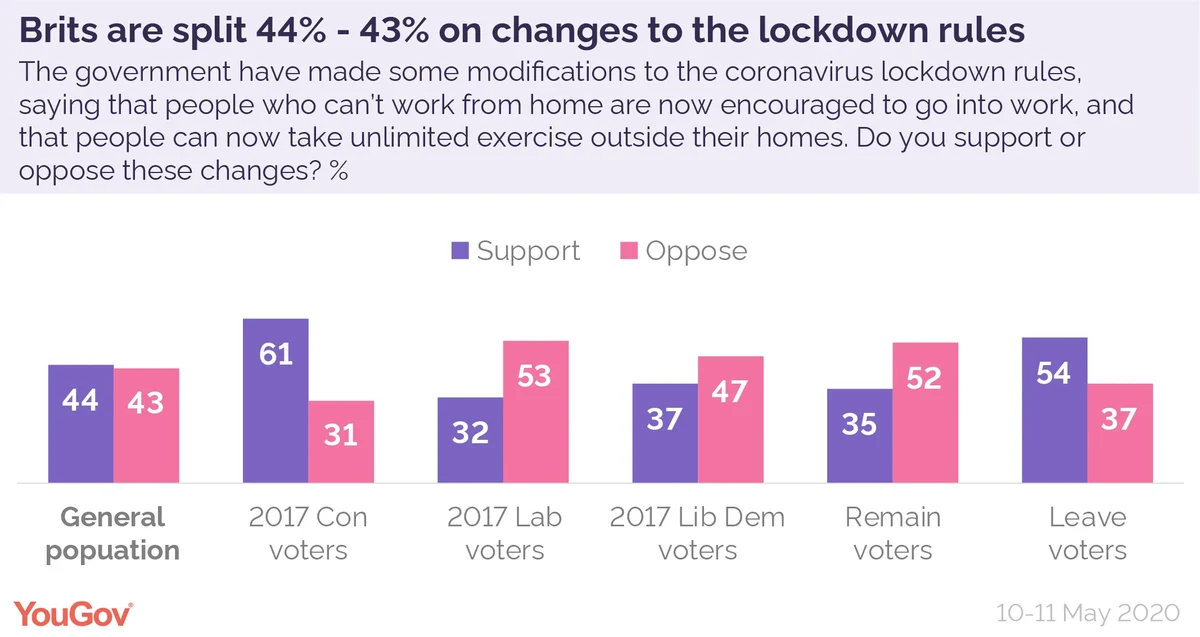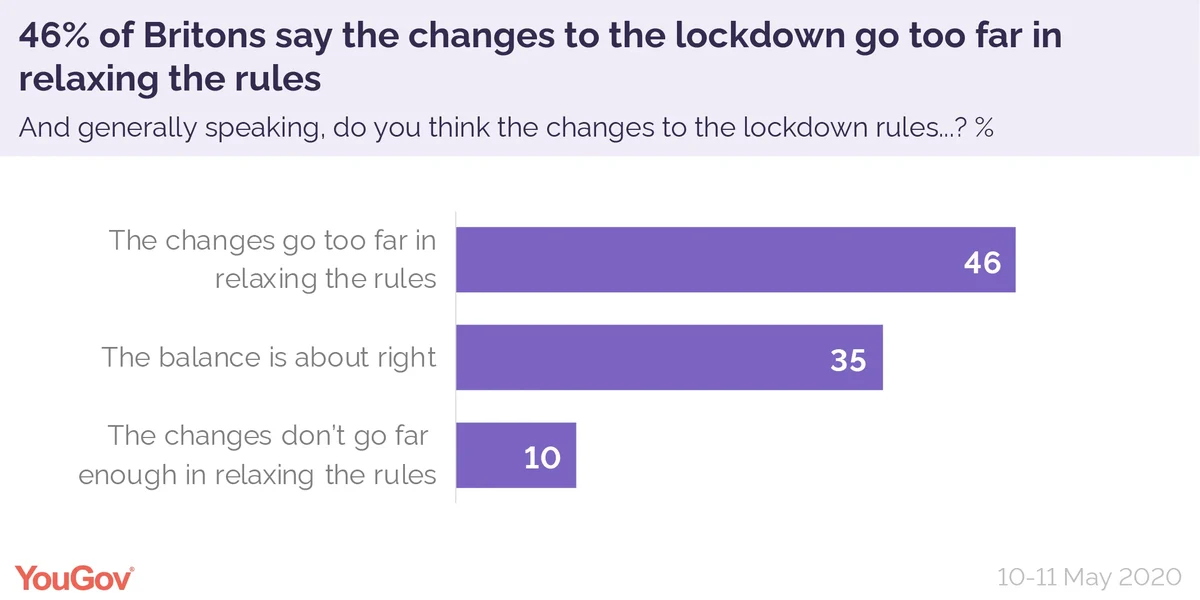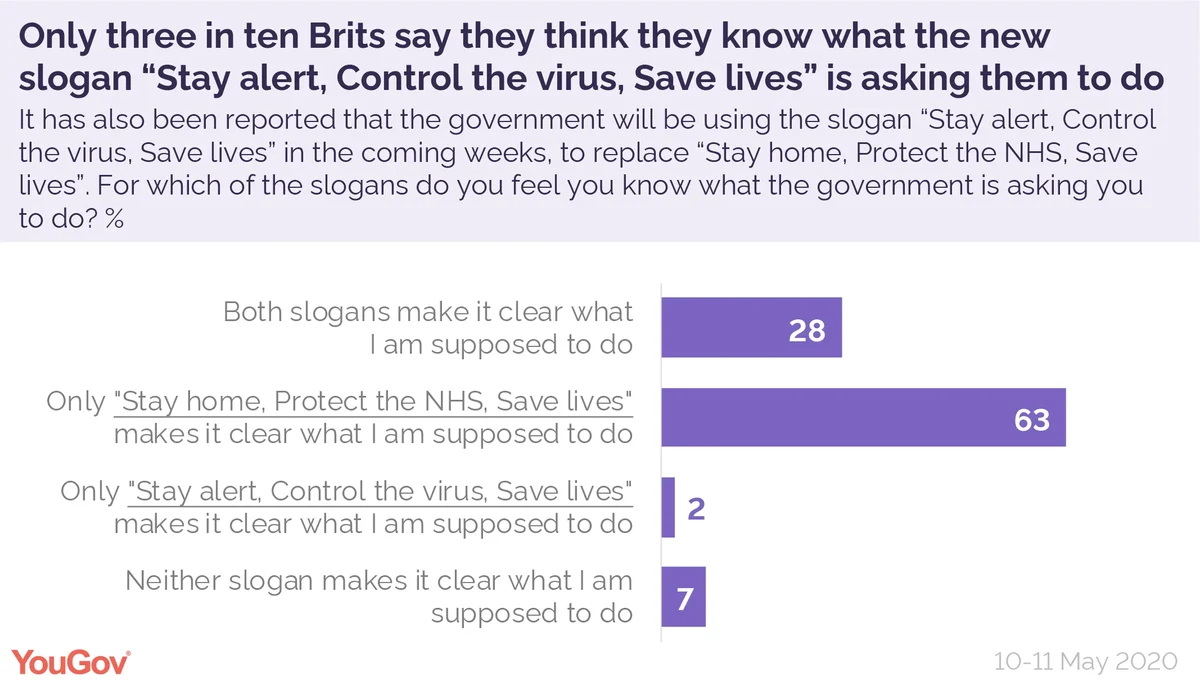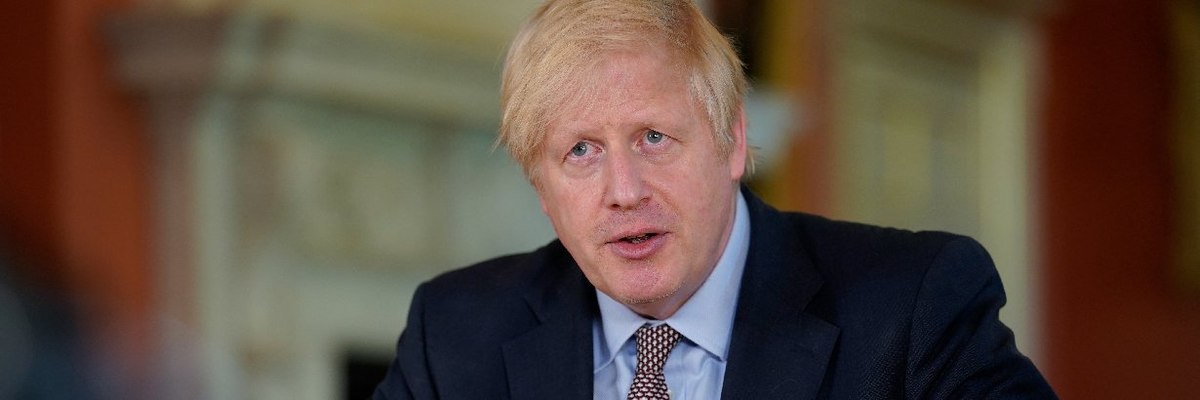Opposition comes mostly from people who think the relaxation of the rules goes too far
A snap YouGov/Good Morning Britain poll of more than 6,500 people finds that Britons are split over the easing up of coronavirus lockdown measures announced by Boris Johnson last night. Although 44% support the move, about as many are opposed (43%). The remaining 13% are unsure.
Six in ten 2017 Conservative voters (61%) support the changes to the lockdown, a much higher figure than the 37% of Lib Dems and 32% of Labour voters.

Age is another key factor in support – while 39-40% of adults under the age of 50 support the move, this increases to 47% among 50-64 year olds, and 53% of those aged 65 and above.
Men are also more likely to back the move (48%) than women (41%).
The fact that so many Britons oppose the change isn’t a sign that people want the lockdown over – quite the opposite.
Fully nine in ten (91%) of those who oppose the move say it is because it goes too far in relaxing the rules, compared to just 3% who say it doesn’t go far enough.
By contrast, among those who support the move, 71% say it gets the balance about right.
Among the population as a whole, 46% of Britons believe the changes go too far in relaxing the rules, compared to around a third (35%) who say the balance is about right. Only 10% say the move doesn’t go far enough in removing restrictions.

Clear as mud
The survey also ask Britons about the already much-maligned new slogan “Stay alert, Control the virus, Save lives”. The statement has received ridicule for its lack of clarity, with critics pointing out that it is not clear what it is asking people to do, in stark contrast to the previous slogan “Stay home, Protect the NHS, Save lives”.
Indeed, while the overwhelming majority (91%) say that the previous slogan makes it clear what they are supposed to do, just 30% say they think they know what the new catchphrase is getting at.

Respondents may be answering this question in a partisan fashion, with Conservative voters more than twice as likely (48%) as Labour (17%) and Lib Dem voters (18%) to say they can divine a meaning in the new messaging.











